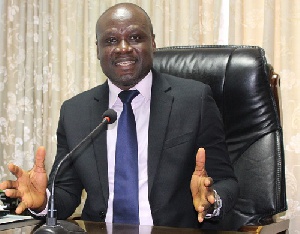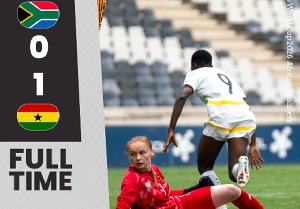The cedi’s perennial depreciation is largely the result of weak economic fundamentals, underpinned by a weak industrial base, the Ghana National Chamber of Commerce and Industry (GNCCI) has said, asking government to speed up its industrial policies.
It said it expected policies like the One District, One Factory and Planting for Food and Jobs, among others, to be yielding some results by now so as to ease pressure off the cedi.
“We were thinking that government’s industrialisation policies like the One District, One Factory would have gone a long way to solve the cedi’s perennial problem,” GNCCI’s Chief Executive Officer, Mark Badu-Aboagye told the B&FT.
“We expected some of these industries to be producing some of the raw materials and finished goods that we import, or produce more for export, but it has been a bit slow, so the structural challenges still remain.
“As businesses, depreciation of the local currency is something that we do not want to happen; but year after year, it has remained a challenge. At the end and at the beginning of every year it happens, but this time around the depreciation is just too much,” he said.
Mr. Badu-Aboagye spoke during an industrial tour to Toyota Ghana and Japan Motors in Accra. He noted that the cedi, which is currently hovering around 5.4 to the United States dollar, is recording one of its worst performances in recent times.
“Some of our members import raw materials, others also import finished goods. So, anytime the cedi depreciates it affects the business community greatly. At the end and beginning of each year, most of us use an average of GH¢5 to US$1, but the rate is currently hovering around 5.3 – 5.4 – meaning that we need additional funds to cater for the depreciation, which will also increase our costs.
“Our analysis shows that this year’s depreciation is quite unique, and it is putting a lot of pressure on businesses,” he said.
He said: “Sometimes, it is difficult for us to just transfer the increment or cost to the consumer. So, in most cases, it is either you absorb it or do a gradual increase. This affects our bottom-line and also makes planning extremely difficult. But definitely, if nothing is done about it, we could see prices going up soon”.
On the way forward, he said government must hasten to restructure fundamentals of the economy so as to achieve a favourable balance of trade.
“The way out is to transform our economy; the structure of the economy is such that it is import-led, and this has contributed largely to the cedi’s depreciation. So, we need to reverse the trend by exporting more.
“If we want to make the domestic currency strong, then we need to change the economy’s structure to export more and import less so as to get foreign currency coming in to shore- up the cedi,” he argued.
Business News of Wednesday, 27 February 2019
Source: thebftonline.com
Speed up industrial policies to check cedi’s slide – Commerce Chamber
Entertainment












